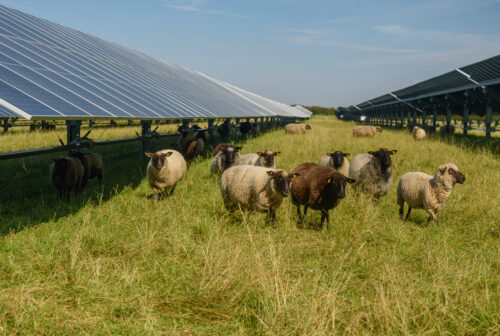Solar under scrutiny: Why we must reclaim the narrative

This week’s debate in the House of Commons is just one in a long line of political discussions around the increased role solar is due to play within our energy network. Led by Dr Caroline Johnson MP, the debate raised a number of concerns around the rise of large-scale solar farms, particularly those on agricultural land. Topics ranged from the ethics of solar panel manufacturing to whether the UK is even suitable for solar energy at all. A lot was said – but a lot, I would argue, was missing.
It’s worth pausing to reflect on the discussion. While it wasn’t a formal policy announcement or a planning reform, it did signal that the journey towards a net zero future continues to face resistance.
Scrutiny is fair, but we need to challenge the narrative
Those in attendance raised legitimate questions about land use, food security and global supply chains. These aren’t things we should brush off, but listening to the debate it struck me how little of it reflected what’s actually happening on the ground.
We know that most solar projects are on lower-grade agricultural land with many able to accommodate pastoral farming, ecological enhancements and biodiversity net gains alongside energy generation. Some bring in considerable local community funds which can help decarbonise local infrastructure. These are often thoughtful, well-integrated projects which deserve a more balanced political discussion.
Instead, what we saw was a debate shaped by fear – fear that we’re losing productive land and that the UK is wrong for using solar as a way to reach net zero. This kind of narrative, if left unchecked, can influence planning decisions and endanger good projects.
Meanwhile, the grid is shifting – and fast
What makes the timing of this so interesting is that it’s happening just as real progress is being made elsewhere. Ofgem’s reforms to the grid connection process – moving from first come, first served to first ready, first connected – are a real game changer for the industry. This promises to free up space, speeding up delivery and bringing construction-ready solar projects to fruition.
But what good is grid access if the politics of planning is becoming more uncertain? We need both systems to move in sync – faster connections and clearer national policy on solar. This means better guidance and training for local authorities together with planning policy that treats solar as a strategic priority, not a local dilemma.
Recharging the case for solar
The UK has committed to decarbonising the power grid by 2035. Solar has a key role to play in getting there – not as a niche option, but as a proven, low-cost solution. That message needs to be louder.
This debate served as a timely reminder that political support for renewables – even in the context of Clean Power 2030 – cannot be assumed or taken for granted. This uncertainty is only deepening, with Reform UK continuing to brand renewable energy as a “massive con”. The industry must see this as an opportunity to step up and make a better case for solar than ever before.
Find out more about Meeting Place’s work on renewable energy.
